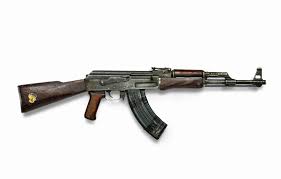weapon
英 ['wep(ə)n]
美 ['wɛpən]
CET4 TEM4 考 研 TOEFL CET6
weapon 武器来自Proto-Germanic*waepan-,武器,可能来自PIE*weip的鼻音形式,弯,转,挥舞,词源同vibrate,wipe。引申词义挥舞武器,刀剑等,最后用做武器。
- weapon
- weapon: [OE] Weapon comes from a prehistoric Germanic *wǣpnam, a source it shares with German waffe, Dutch wapen, Swedish vapen, and Danish vaaben. But of the ancestry of the Germanic form nothing certain is known.
- weapon (n.)
- Old English wæpen "instrument of fighting and defense, sword," also "penis," from Proto-Germanic *wæpnan (cognates: Old Saxon wapan, Old Norse vapn, Danish vaaben, Old Frisian wepin, Middle Dutch wapen, Old High German wafan, German Waffe "weapon"), from *webno-m, of unknown origin with no cognates outside Germanic.
- 1. They've stooped to using any and every weapon at their disposal.
- 他们已经无耻到把能用的武器都用上了。
来自柯林斯例句
- 2. The police nicked me for carrying an offensive weapon.
- 警察以携带攻击性武器为由逮捕了我。
来自柯林斯例句
- 3. The report outlined possible uses for the new weapon.
- 该报告概述了这种新式武器的可能用途。
来自柯林斯例句
- 4. Lewis was tried for unlawfully and dangerously discharging a weapon.
- 刘易斯因非法和不安全的开枪而受到了审判。
来自柯林斯例句
- 5. Enriched uranium is a key component of a nuclear weapon.
- 浓缩铀是核武器的关键组成部分。
来自柯林斯例句
[ weapon 造句 ]
